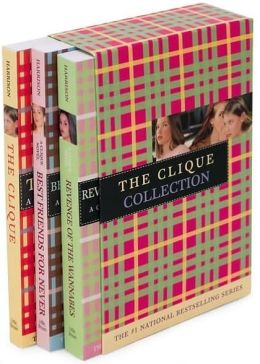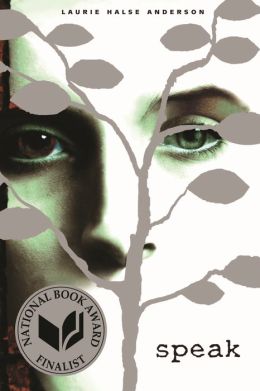Divergent has, at its core, the idea of self-identification. I'll let the summary from Barnes & Noble's website explain this to you: "[S]ociety is divided into five factions, each dedicated to the cultivation of a particular virtue [...] On an appointed day of every year, all sixteen-year-olds must select the faction to which they will devote the rest of their lives." There is an element of choice in this division, so the teens have some power over where they belong.
The easiest example when talking about outcasts in YA fiction is our good old friend, Harry Potter.
| Hello again, Harry. |
| "Stupid Muggles." |

*Please don't throw books. It makes librarians and bookstore employees upset, and hurts the books.
Stories set in high school hold some more obvious, literal examples of cliques and either trying to get into them or stay out of them. There's even a series called The Clique by Lisi Harrison. Its tagline is, "The only thing harder than getting in is staying in."

So why are we so compelled to read about losers and outcasts, whether they ultimately wind up fitting in or staying the way they were?
I've been told by some people that it's because avid readers identify with the "losers," but I have to disagree. No, not because that's kind of insulting to avid readers like myself, but because lots of different types of people like to read lots of different types of things. Most of the self-identified avid readers I know are not fond of the Twilight series, and Bella makes an excellent outcast who belongs neither in the human world (for knowing about the Cullens) or the vampire world (because of that whole mortality thing).
| Or in Hollywood, for her emotional range |
I think everyone, at some level, identifies with the outcast kid. If it was only the people inclined to read who enjoyed stories about protagonists who "don't belong," then movies made from books like Harry Potter and Twilight would have died a quiet, dusty death in the box office, being viewed only be the biggest fans of the books.
No, instead, I think it's because outsiders make better characters. If, instead of living with the Dursleys, Harry had grown up in a magical family, he would have been fully aware of... everything. Instead, he needs help to understand the magical world he has been dragged into, so he becomes friends with more interesting people like Hermione and Ron, and we learn about the world along with him. There would be no reason for someone to explain how Gringott's works if Harry had grown up in Godric's Hollow.
| Just another day running errands |
 |
| Is it too mean to make two jokes in one post about Kristen Stewart's emotional range? |
*"Nobody" in this case meaning "a small enough fraction of the book-buying audience to prove to publishers that catering to them would be a waste of money."
The easiest way to give issues to a fictional teen is one of the easiest ways for a real teen to develop them: being an outcast trying to fit in.
For the record, I think Kristen Stewart's performance is "Speak" was far more impressive than her performance in Twilight. Which is really just saying how awful Twilight was.
ReplyDelete